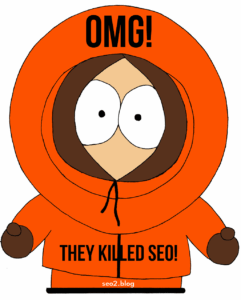
You certainly know urban legends already. Stories, misconceptions and myths that sound enticing and thus get spread through gossip all over the place.
Urban legends mostly proliferate where people use to meet for small talk, thus “urban”. The Internet is even worse when it comes to such legends.
- Lies
- hoaxes
- fake news
and other
legends spread on the Web even faster due to low accountability and “viral” social media.
Thus I decided to open your eyes to Internet legends everybody including you should know when browsing the Web. It’s good for your
- privacy
- security
- sanity.
Check these out and tell me more in case I forgot some:
The Web is open and uncensored: In the early days authorities tried (and some still try) to scare users by telling them that it’s far too open and uncensored.
You can download bomb building manuals everywhere etc. they would tell you! Well, try searching for such material.
Not only you’ll have difficulties to find it on Google, even manuals on how to block trains (to stop nuclear waste transports) have been taken off the Web.
Ideally you don’t try to search for it as you are NOT anonymous on the Web. See below. At least use a relatively private search engine like DuckDuckGo or Ecosia.
The Web is anonymous: You just need to use a nickname, don’t you? Well no. Even without tracking your IP you can get identified among millions of others just via your unique browser fingerprint.
Every Google search can be tracked back to you and will be used against you in court.
Write “I want to kill the president” on the Web and your home will be raided within 24 hours even if it was just a joke. You don’t have to be a killer though, being a blogger is enough.
The Web never forgets: Old media like to scare new Internet users about how the Web never forgets what they have published once.
It will shatter their future career etc. as potential employers check your name in Google first. That’s stupid scare-mongering.
I’m on the Web since 1997 and I have been publishing ever since. Most of it sadly disappeared as many sites end up as dead links after a few years.
Also nobody beside the CIA will check all the 200 results in Google for your name. There are by far too many applicants to do that.
Stay yourself and make sure the top results are quite OK. Everybody has some issues so a completely clean person is suspicious.
Become known on the Web for the great things you do or write and nobody will care for the occasional rant.
People are genuine on the Web: Your Facebook friends, bloggers and Twitter followers are genuine, aren’t they? Especially when they recommend books or other products.
Unfortunately most bloggers do not disclose affiliate links.
Most bloggers link books on Amazon to earn a commission when you buy them. On Twitter and Facebook even fewer people disclose affiliations.
Posting images of yourself or your kids is safe: You can post images of yourself or your children online – whether it’s Instagram or your blog – can’t you?
Well, anybody can use them to stalk, abuse and ridicule you. The fewer images of yourself you post the better.
Just think of the Spanish politician whose image got used to show how Bin Laden might look by now.
The graphic designer who made the photo montage just the image from the Web.
Also many scammers just take off photos from teh Web and try to trick people using your face.
Social Media sites are democratic: On social sites like Twitter, Facebook or YouTube the best content gets shared the most as the “wisdom of crowds” decides. Sadly not.
Who has the most followers or fans can push anything. You have seen this during political campaigns in recent years a lot.
The social sites themselves are not democratic but governed by profit oriented top down hierarchies.
The owner decides ultimately what gets published or pushed. At the end of the day
- Mark Zuckerberg
- Rupert Murdoch
- the Google billionaires
or someone else with a similar fortune decides what type of content gets the most visibility.
You have no rights on such sites and your account can get terminated for any petty reason without prior notice.
You have to listen to influencers: Some people have tens of thousands of fans and people readily retweet, link or “like” them. Why?
Influencers are known for being famous on the Web so what they say must be true! It isn’t.
They spread nonsense all the time. They tell you that blogging or SEO is dead to gain attention and links while behind the scenes they spam the Web. Beware of self proclaimed Web celebs.
Online celebrities famous for being famous will often sell you things or lifestyles that are not sustainable for mere mortals or they will simply mislead you to reflect their or their sponsors agenda.
Mainstream media are unbiased or “objective”: You only can trust old media then, the NYT, CNN, BBC. True? Nope.
Even the New York Times has spread the lies about the Weapons of Mass Destruction in Iraq. CNN has been infamous for its pro-war propaganda, yes, CNN, not just Fox News.
The BBC aired a Yes Men hoax twice before it was taken down. Every media outlet, be it a newspaper, a news network or a blog has an agenda.
You need to know what the agenda is and who pays them to be able to see through their bias. The BBC is basically a state run service paid by the United Kingdom government e.g.
The others are evil, we’re fine: The Web is so full of propaganda I could puke any day. Just read any news item about Iran. For instance you’ll find plenty of stories about homosexuals getting killed for being gay.
While I’m as pro-gay as a straight man can get and I firmly oppose the death penalty you just need to search on Iranian news sources to find out the truth.
Just search for the name of the alleged innocent gays who have been sentenced to death. They usually have been convicted of rape, murder or other gruesome crimes.
Is Iran the most dangerous nation on Earth? Well, think about this: Iran hasn’t started a war or armed conflict in the last 100 years.
In the meantime the US has fought in over 50 wars and armed conflicts it has started itself. The US has still the most nuclear weapons on the planet. It could obliterate Earth a thousand times.
How to spot lies on the Web?
How can you spot lies, myths and Internet legends? Well, they sound too good to be true. They resonate with our fears and hopes.
They tell us we’re the best and can get everything at the expense of others. They appeal to our lowest instincts.
Please use common sense, read between the lines and check several sources with different agendas to find out the truth.
Ideally you also check original sources. For example when the covid panic struck I focused on the WHO site and other reliable sources.
They quickly reported that the virus is not as scary as it seemed and mostly affected elderly people with existing conditions.
Meanwhile the mainstream press still tried to scare everybody for months and years. Bad news are selling better than good ones.








